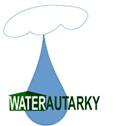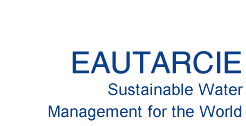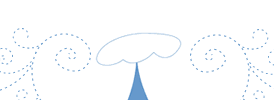
The EAUTARCIE website is not tied to any commercial venture. The information provided herein is included strictly to help the public find the necessary materials and equipment towards realizing their EAUTARCIE system. To help us improve this information service, we invite all readers who have dealt with merchants herein mentioned to let us know their degree of satisfaction. To help us expand this list, all information on the existence of merchants who have adopted the EAUTARCIE philosophy and ethical practices propounded herein are welcomed.
To find out how to build your BioLitter Toilet, click here or download the pdf schematic. [Drawings adapted by Olivier Vienne, from Écaussine in Belgium]
he text within this page was first published in French on www.eautarcie.com: in 2006
The original text has been adapted and translated in English by André Leguerrier and was first posted on www.eautarcie.org: 2009-06-15
Last update: 2017-05-25


The BLT on the Market
The BioLitter Toilet or BLT does not benefit from any commercial advertising. The basic idea is that anyone and everyone should have access to a toilet that is truly environmentally friendly. It can obviously be built by your average handymen![]() or « do-it-yourselfers » using the plans provided within this website. You may also want to look-up Joseph Jenkins' drawings and sketches in his book on humanure toilets or on his website. Here is a finished example
or « do-it-yourselfers » using the plans provided within this website. You may also want to look-up Joseph Jenkins' drawings and sketches in his book on humanure toilets or on his website. Here is a finished example![]() .
.
An elegant solution can also consist in setting a sanitary bucket in a chair seat: an inexpensive and efficient solution![]() , and very presentable
, and very presentable![]() .
.
However, if you are not handy with tools, you can find BLTs already available on the market in some regions of the world. This is particularly true in France and Belgium, where the EAUTARCIE website has had considerable success. One can only hope that BLT manufacturers will sprout worldwide.
Where to Buy a BLT
An increasing number of craftsmen and suppliers commercialize BioLitter Toilets. The BioLitter Toilet propounded on this website is known under various names: under the acronym TLB (or « toilette à litière biomaitrisée »), its notoriety is currently limited to francophone Europe, mainly Belgium and France. In my native Hungary, it is known under the name « alomszék ». In Germany, it is classified as a « compost toilet » (« Komposttoilette »). In North America, it is often called a sawdust toilet, but is increasingly being called a « Humanure toilet » as propounded by Joseph Jenkins.
Outside this range, it will take some time for the scientific foundations and philosophical approach behind litter-based dry toilets to get around. Where commercial BLTs are not available, those interested will have to build it themselves…
In Europe
BLTs are available in kit form in Belgium, France and Germany.
In Belgium, you can start with the local Friends of the Earth Chapter.
In France, a number of craftsmen and suppliers also commercialize BLTs.
- http://lithops.over-blog.fr/
- http://www.labelverte.fr/
- http://www.ecotrone.fr
- https://lecopot.com/
- http://www.toilettes-seches-nature.fr
In Germany, look up the Nowato website, under « Innentoiletten ».
In the USA and Canada
The BLT known as the « Humanure toilet » is commercialized by Joseph Jenkins under the name « Loveable Loo ». This and various owner-built models can also be seen on his website:
BLTs for Collective Use
Again in France, Belgium and Germany, there are companies that even sell or lease portable BLTs as « Johnny-on-the-spots » for construction sites, festivals and other public gatherings. As an example, look up the following websites:
- http://aquaterre.canalblog.com/archives/accueil/index.html
- http://www.caux-loc-services.fr/product/toilette-seche/
- http://www.caux-loc-services.fr/product/toilette-seche-pmr/
- http://www.labelverte.org/produits/location-toilettes-seches/
- http://www.1metre3.ch/www/spip.php?rubrique2
- http://www.toilettes-seches-nature.fr/Les-publiques.html
- http://www.floreco.be/?page_id=839
- http://www.toilettesandco.com/
- http://www.huged.be/details.php?id_products=1131
- https://www.nowato.com/haeufig-gestellte-fragen/




